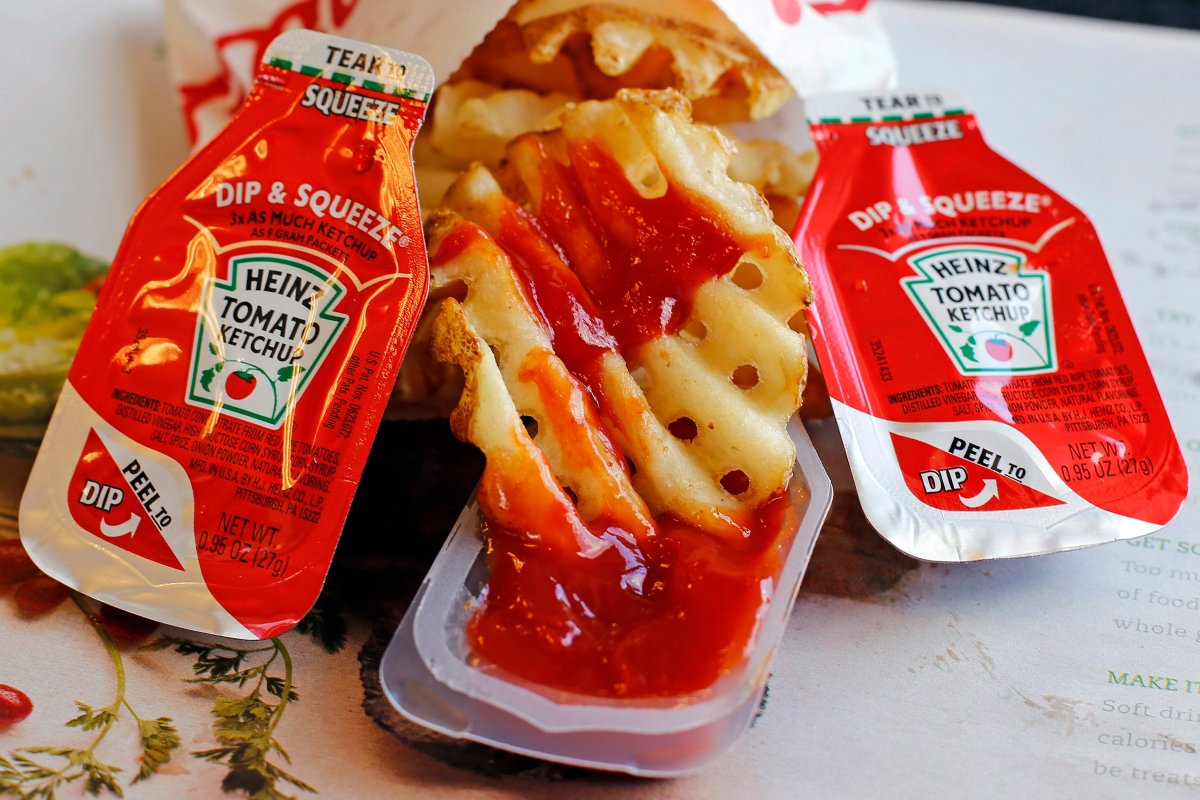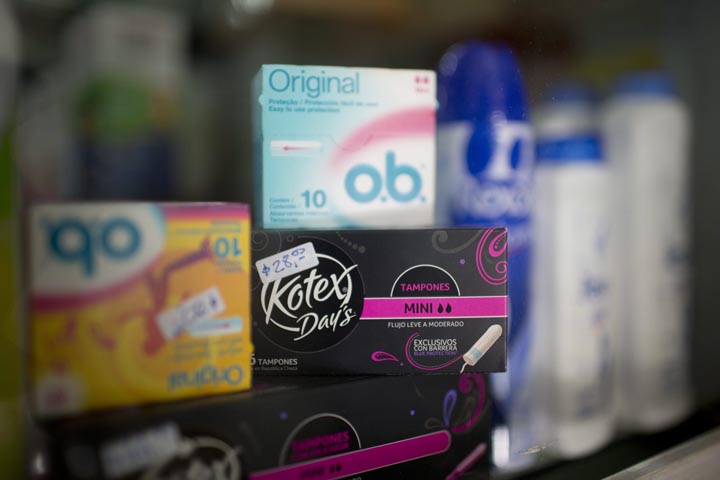As plastic straw bans pop up around the world, more light is being shed on how much plastic humans have put in the world.

And we’re trying to crack down on plastic that we use just once like straws, coffee stirrers, and most food packaging.
While some consumers are trying to limit their own plastic footprint, some companies are also trying to lead the way.
Kraft Heinz Co. has announced that it will aim to make 100 per cent of its packaging recyclable, reusable or compostable within seven years – meaning things like Kraft Singles (a staple of grilled cheese sandwiches and each wrapped individually in plastic that’s thrown away immediately) and the take out ketchup packet could be getting a major overhaul.
“Everything is on the table,” Caroline Krajewski of Kraft Heinz said at the time.
It’s joined other companies like Nestle and Proctor & Gamble in adding specific goals to reduce plastic waste.
But there’s more companies can do: Ashley Wallis from Environmental Defence says making something “technically” recyclable isn’t enough, companies should also be recylcling their own products.
Usually it’s on municipalities to recycle plastics – they’re the ones that come empty our recycling bin and manage recycling plants in cities.
“Industry should be the ones to take responsibility for their packaging both in terms of collecting them in end of life and recycling,” Wallis explained.
“[Right now, they can basically produce whatever they want and put it on the market.”
If companies were to be required to recycle their own products, they would be more incentivized to come up with “be more innovative and design packaging that can more effectively be recycled or be more innovative and design better recycling systems.”
With that in mind, what are some everyday items that could use a “sustainable makeover”?
The take-out container
While many think the plastic take out container is recyclable, the common black container usually isn’t. That’s because black plastic isn’t able to be sorted by optical scanners used is most recycling facilities. The black just blends into a conveyor belt.
There are certain places – like Halifax – where they are recyclable, but it might be more sustainable to just move to a different colour.
Other take-out containers might be Styrofoam, which is worse, Wallis says.
“There are a couple of plastics which are particularly problematic because they are very challenging to recycle and also contain toxic chemicals and examples of those Styrofoam and PVC,” she said.
The Environmental Defence would like to see a movement away from those two plastics in Canada.
Other food-related things like the paper used at a deli isn’t recyclable because it has a plastic layer to it.
That brings us to the next item…
Layered pouches:

These are things with two types of plastic together — like the bag with a zippered top (like certain frozen fruit packing) or juice pouches (like Capri-Sun). A newer packaging for baby food also sees
“The recycling of those is much more challenging because when they get to a recycling facility eating to be broken down into their component parts before they can be turned into something,” Wallis said.
“And that process may be so expensive that in our current system there’s very little motivation for a municipality or a recycling provider to recycle this material.”
Anything with multiple layers or multiple types of materials is difficult, because the material needs to be separated. Heinz’s dip-and-squeeze to-go ketchup packets might seem recyclable because they’re plastic, but the top layer isn’t which disqualifies it.
Which leads us to…
The regular ketchup bottle:
Wallis explained while the larger ketchup bottles are fully plastic, they usually have a layer built into the middle of the plastic to protect from UV light. That allows ketchup to keep it’s colour longer, she said.
While most municipalities can recycle this type of bottle, it makes it more challenging.
Menstrual products:
Tampons have plastic applicators (though some have cardboard applicators) and menstrual pads usually contain plastic. While these aren’t recycled they do end up in landfills.
There are already some sustainable products that have started cropping up, Wallis recommends menstrual cups, which can be cleaned a reused, but said there are other options like absorbent underwear that holds as much menstrual blood as a tampon.
The Coffee pod:
Many people already know the coffee pod was — at first – un-recylcable. But then companies said they designed newer versions, where the pods could either be dismantled or they were compostable.
But Wallis warns that not all municipalities accept them as recycling.
And if you’re composting, they need very specific conditions.
“They’re often not compostable in your regular everyday like backyard compost pile they require very specific conditions,” she said. “Not every municipality currently has those kinds of composting systems.”
Coffee cups and milk cartons:

There’s been a push to sort your coffee cups into the garbage – ads in Toronto tell people to throw them in the trash instead of their blue bin.
That’s because – like layered plastic – these are two types of materials. There’s the paper outer layer, and a plastic interior.
Same goes for milk cartons. While these — unlike coffee cups — can be recycled, it presents different challenges.
- Ontario takes action against chemical plant after Aamjiwnaang First Nation residents fell ill
- High benzene levels detected near Ontario First Nation for weeks, residents report sickness
- Beijing orders Apple to pull WhatsApp, Threads from its China app store
- Fishing vessel with crane, net arrives in Zeballos for orca calf rescue















Comments